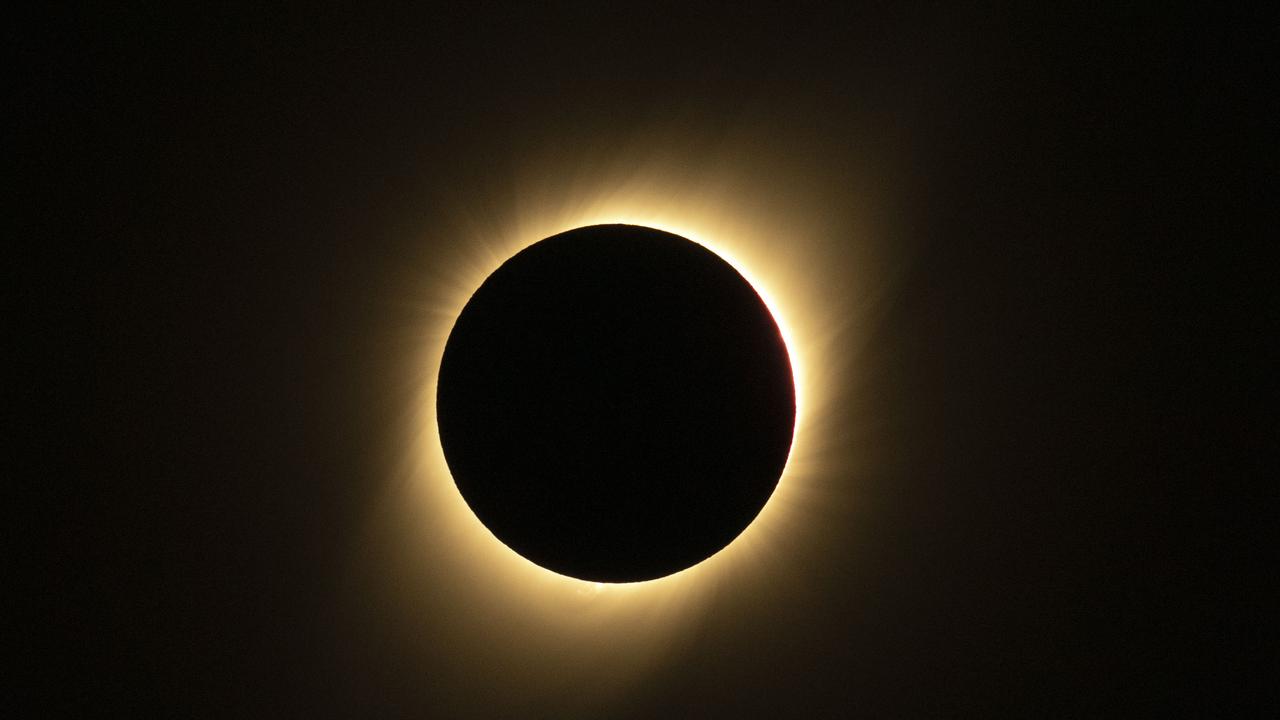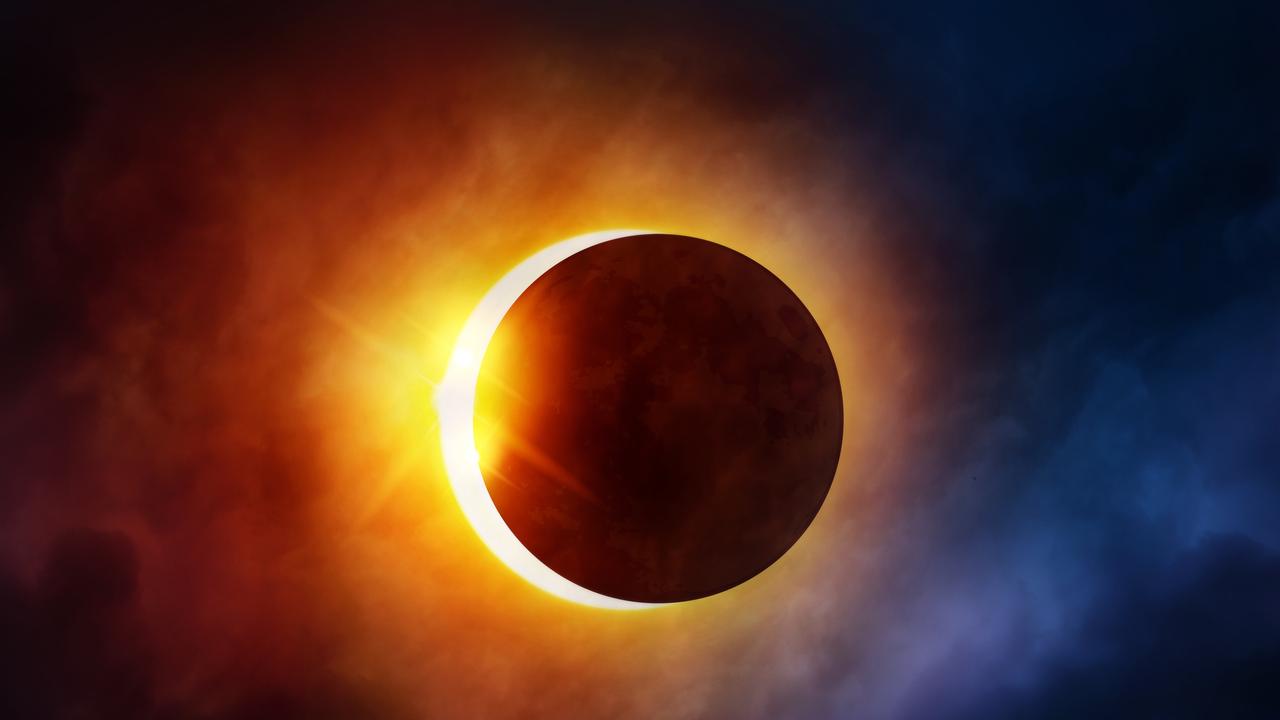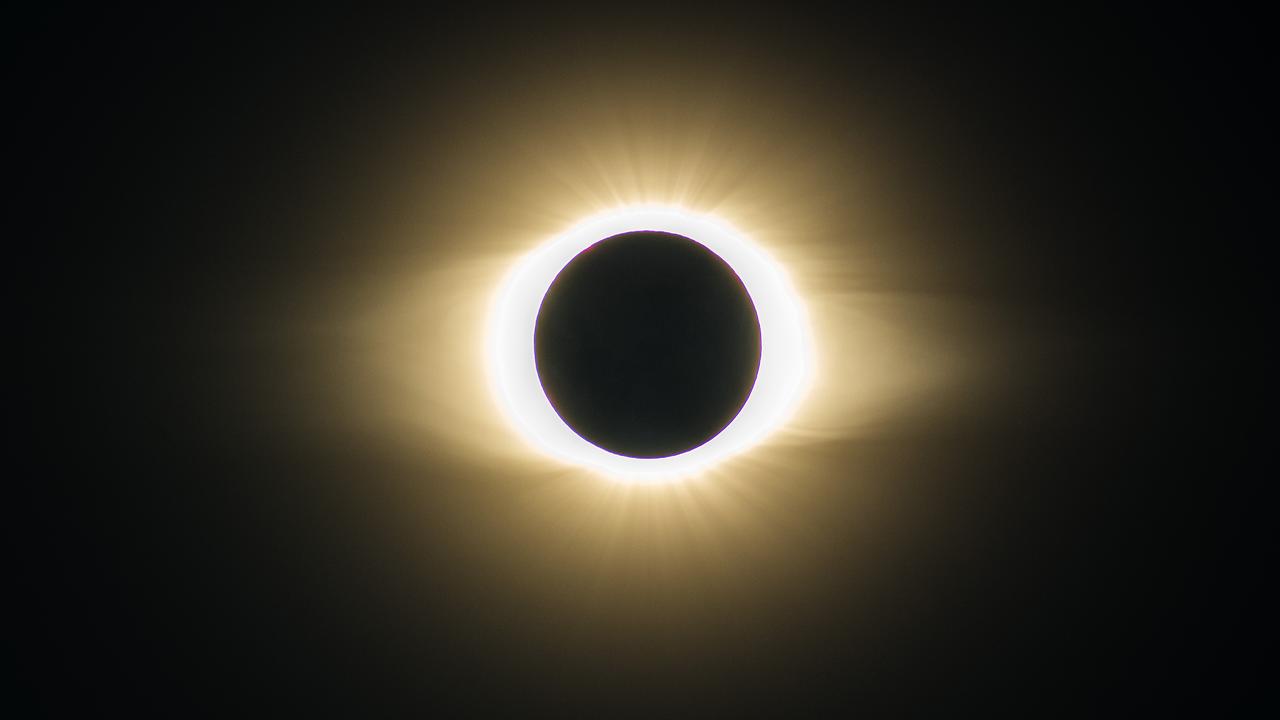What to expect from this year’s only solar eclipse on June 10
The super blood moon caused relationship chaos and now a solar eclipse is expected to bring quite a bit of, ahem, action.
The super blood moon caused a bit of an astrological pandemic in May – and it appears it’s not over yet.
The rare sight, while beautiful to look at, posed a “tremendous amount of emotion” for every star sign.
It brought out the “crazy in people” and may have led to relationship breakdowns.
And with this year’s only solar eclipse on its way (on June 10), coupled with the recent total lunar eclipse, Australia’s intuitive astrologer and spiritual adviser Rose Smith told news.com.au it will have definite implications on relationships.
But the good news is, people will also be having a lot more sex.
RELATED: Super blood moon may affect star signs

“There is going to lots of sex happening, but couples may also break-up because they may act on their emotions too quickly and too impatiently,” Ms Smith said.
“On the other hand, talking things through that have been brewing for a while, and that have finally been resolved, could lead to sex.
“I’d imagine there’s going to be lots of babies born nine months from now.”
She said if you have one person holding back while the other wants to merge, then it could lead to heated arguments.
“Union is the ultimate goal but the path there is full of twists and turns, ups and downs and all of this plays out in our relationships.”
She said a lunar and solar eclipse are as powerful as each other, and with both happening so close together, a spiritual process has started but isn’t complete until sometime after this Thursday’s solar eclipse.
RELATED: ‘New’ star sign is freaking people out

“Lunar eclipses are about integrating experiences – the focus is internal or within – while solar eclipses are about taking action and the focus is external. You make the inner changes first then do something about the situation by releasing these experiences physically.
“Relationships may have broken up on the night (of the super blood moon) but couples are just as likely to break up now because it’s about the action.”
Ms Smith said despite the fact the solar eclipse won’t be seen in Australia with the naked eye (only in the northern hemisphere), we will still experience the spiritual, emotional and physical consequences.
“The danger period isn’t over yet because what can happen is the effects of an eclipse can last up to six months, but certainly a few months there can be consequences to all this energy flying around.”
She said if something has been brewing inside of you for some time, you’re likely to have a “great explosion of energy”.
“The solar eclipse is in Gemini, this means that Gemini and other air signs Libra and Aquarius will also be affected and will need to have a good handle on their emotions.
“They are also doubly affected because Mercury is in retrograde in Gemini now and until June 21 making for lots of misunderstandings and miscommunications and problems with technology.”
She added that some people may be a lot more stressed than usual and may experience headaches, neck and shoulder pain.
“This is because we are now making things more physical, including our emotions and decisions as the internal changes have already been made following May 26’s total lunar eclipse and super blood moon.”
RELATED: What to know about your new star sign

She said that while the ramifications of the June 10 eclipse can last for months, July is looking quiet.
“The good news is we should feel alleviation from these symptoms following Thursday’s solar eclipse,” she said.
“People should be starting to feel better, and our minds and emotions should be clearer so we can start to realise the direction we need to go in to move forward.
“Whether that’s coming to terms with ending a relationship, focusing on work or business after an initial shock or confrontation, or whatever it may be – starting to plan and taking action will help.”
In Australia, the June 10 solar eclipse will be “felt” at 8.41pm AEST, while the best actual viewing locations will be in countries including Canada, Russia and Greenland.




